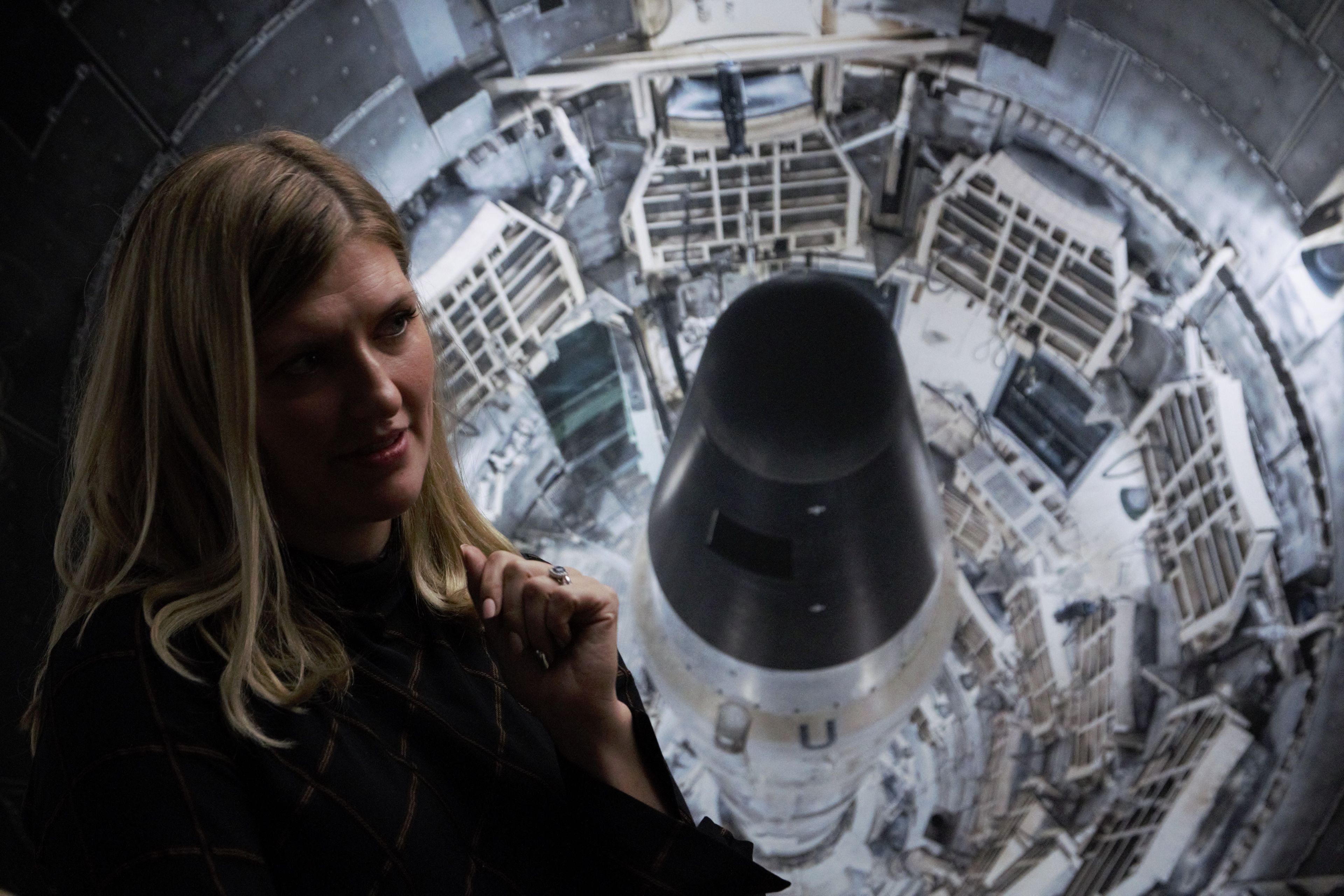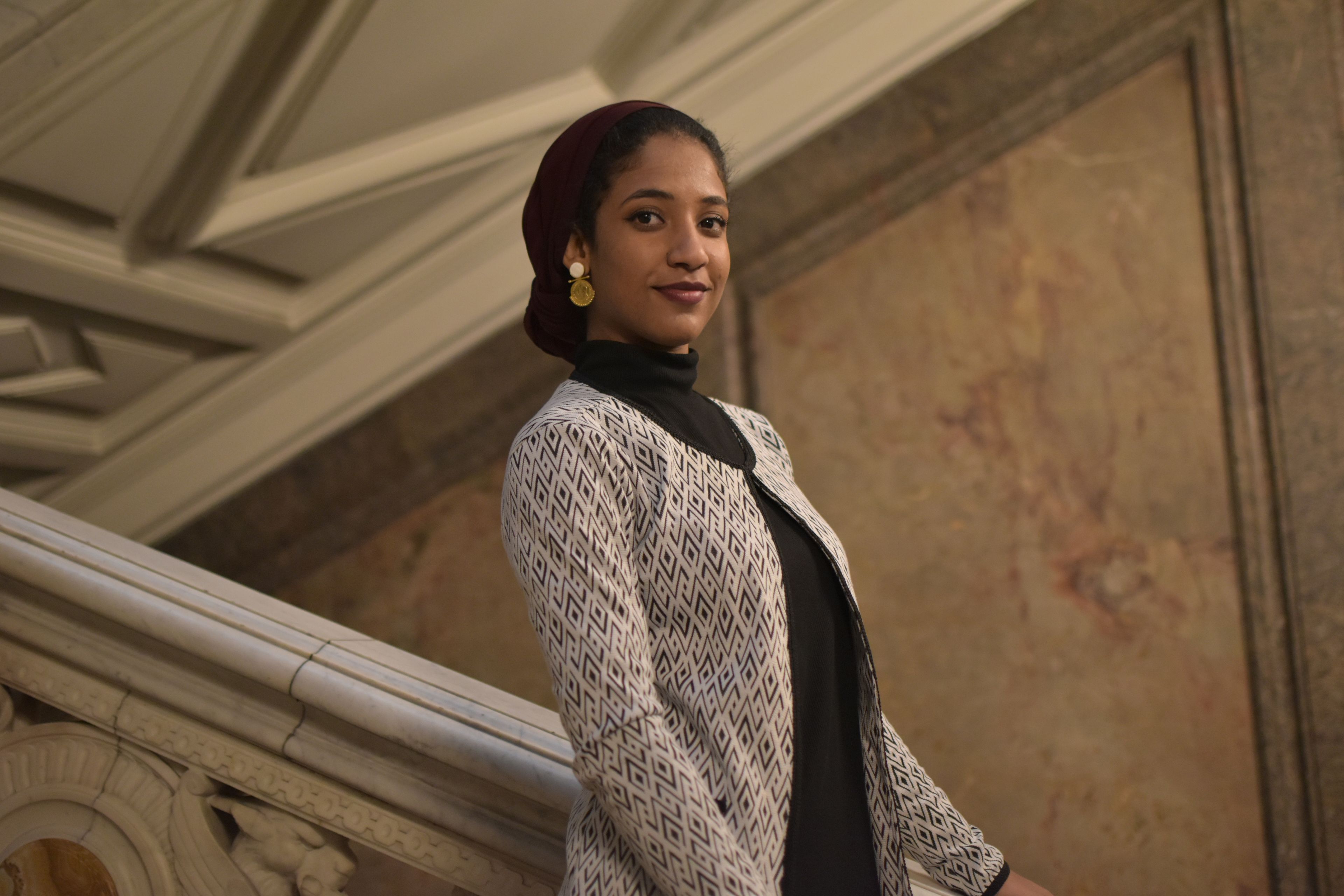A digital gathering for diversity
Diversity was the topic for this year’s Oslo Pax, the annual peace conference at the Nobel Peace Center. Due to the Covid-19 restrictions, the event was mainly digital, with 600 viewers from across the world. At the Nobel Peace Center, a limited audience of 50 followed the live transmission from the stage, where journalist Noman Mubashir hosted the four-hour long conference, with 21 speakers participating from 5 continents. Among the speakers where Nobel Peace Prize laureates Jody Williams and ICAN’s Beatrice Fihn, gender and inclusion experts Michelle King and Sheree Atcheson, business leaders from international corporations like ABB and Wipro, and activists Hajer Sharief, Alaa Salah and Ilwad Elman.
Diversity is a precondition for success in all parts of society: To create successful businesses, sustainable societies, and lasting peace, we need to take advantage of all the resources and competence available. We cannot afford to leave groups behind. But how do we move from awareness to change?Oslo Pax 2020 focused on the benefits of diversity in different sectors of society and explored how the business sector and civil society can work together to achieve the goals of diversity and inclusion.As the Norwegian minister of foreign affairs, Ine Eriksen Søreide, put it in her opening speech: “Diversity matters and therefore, our inclusion efforts matter as well.”
2020 marks the 20th anniversary of the UN Resolution 1325 on Women, Peace and Security. It also marks 25 years since the Beijing Platform, the most progressive blueprint ever for advancing women’s rights. It is also the beginning of the Decade of Action, with just ten years to go to deliver on the global Sustainable Development Goals. “It is about a power shift from men to women”, Åsa Regnér, Deputy Director of UN Women, pointed out. “That shift has not yet happened. It has happened on paper, but we need reality to change as well.”Regnér took part in a panel discussion with gender equality experts and representatives from the private sector, investigating how the private sector and civil society can work together to make inclusion and diversity the social norm. Iwad Elman, Director of programs and development at the Elman Peace Society is working closely with the private sector in her efforts to empower and reintegrate survivors of violence and war in Somalia.“The private sector should not just be financial supporters, but also develop ideas that help implementing lasting change in society”, she said.
Participating live from Doha where the peace talks between Afghanistan and Taliban were taking place, peace negotiator Fawzia Koofi reminded the Oslo Pax conference about what inclusion is really about: The possibility of different groups to take part in decisions that affect their future. Koofi is one of the four women taking part in the peace talks, and she came to Doha with her arm in braise after having been attacked by gunmen in a market outside Kabul.
"The louder we shout, the more they try to silence us. But if I should die, and I accept I might, there are so many others behind me. Because that is what we do as women peace makers. We create change, we build societies, and we motivate other to stand on our shoulders."
Diversity matters. I really could not agree more. It matters who carves out the agenda for peace talks. It matters which companies get to take part in economic reconstruction and who they employ. Diversity matters and therefore, our inclusion efforts matter as well.
Ine Eriksen Søreide, Norw. Minister of Foreign Affairs
Diversity can transform not just the businesses, societies, and governments, but also the way we shape the world, and make it more secure and more fair for all people.
Beatrice Fihn, Executive Director of ICAN, Nobel Peace Prize Laureate, 2017
It is not enough to have diversity and inclusion; we need to create a culture of equality and a working environment where people can be themselves and to be valued for that.
Michelle King, Gender Equality Expert
Women must participate in government at 50% in order to achieve the peace that we dream of in the way that we want it. Wherever there are women, there is peace.
- Alaa Salah, Human Rights Activist, Sudan
Share:




